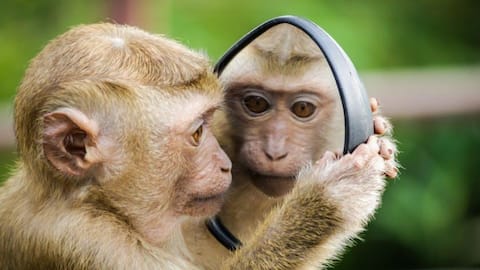Animals, like humans, become less social as they age: Study
What's the story
A recent study has found that animals, like humans, become less social as they age. This trend of reduced sociability is seen across species ranging from wild deer to insects, monkeys, and birds. Dr. Josh Firth from the University of Leeds noted this as a "general pattern of individuals becoming less social with age." Older animals may not need as much information sharing as younger ones. Reduced social interactions could help older animals avoid infections due to weaker immune systems.
Health implications
Decreased sociability in aging animals offers health benefits
While less sociability can be detrimental to humans, it seems to benefit animals' health. Firth stresses the importance of accounting for these benefits with the drawbacks in humans. He proposes virtual interactions could assist humans in balancing these effects. The research is featured in a special issue of the journal Philosophical Transactions of the Royal Society B Biological Sciences. Studies show more social species live longer and have longer reproductive periods.
Species differences
Age-related social changes vary across species
Data on house sparrows show older birds have smaller social circles as peers die off. A separate study on common terns indicates genetic factors may contribute to age-related social changes. In rhesus macaques, fewer social connections seem to reduce disease risks for older animals. Another study on red deer shows while older individuals face higher infection risks, they can counter it by limiting interactions. These findings highlight the varying impacts of aging on sociability across different species.
Red deer
Study on 'social aging' in wild red deer
A multidisciplinary team from the Universities of Oxford and Edinburgh has discovered that wild red deer tend to become less social as they age. According to Dr. Greg Albery from the University of Oxford's Department of Biology, the study revealed that older deer's social networks gradually decrease, with aging individuals opting for more isolated locations and interacting with fewer deer in these sparsely populated areas. This process of "social aging" appears to be influenced by these preferences for solitude.
Effects of aging
Importance of the research
Understanding how social behavior changes with age is valuable for research across various species, including humans. This research offers fresh insights into the effects of aging on individuals and may reveal how societal structures and dynamics could shift as populations grow older. The researchers now aim to apply these scientific methods to other long-term data sets of wild animals, hoping to develop a broader understanding of the fundamental principles that may shape aging and social behavior in natural populations.
